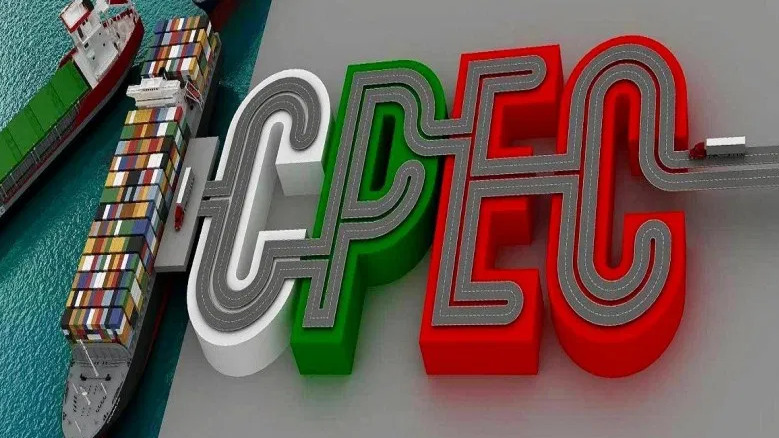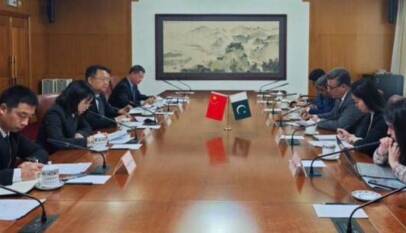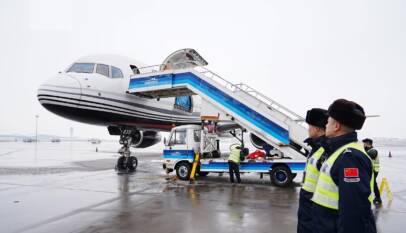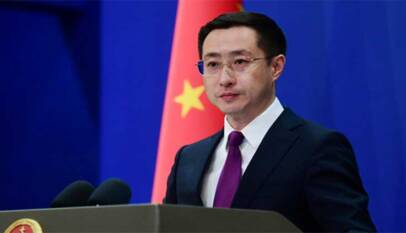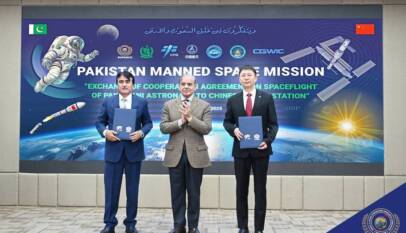Opponents of China-Pakistan want to disrupt CPEC: Chinese Consul General
Chinese Consul General in Karachi Li Bijian elucidated misunderstandings pertaining to CPEC. Based on facts and figures, he informed CPEC is not a debt trap and China is not pursuing regional colonization under BRI. Western media and enemy of Pakistan’s prosperity under CPEC has been trying to sabotage CPEC through false propagation. He also highlighted the socio-economic development of Pakistan under CPEC.
Chinese Consul General in Karachi Li Bijian on Monday said that there is a misconception about the China-Pakistan Economic Corridor (CPEC) that through the project China is setting up a new colony in Pakistan and will eventually take over the country.
He was addressing an international conference titled ‘Role of Media in Poverty Alleviation and Promoting Social Justice’ that opened on Monday at the Bahria University Karachi Campus.
Organised by the university’s Department of Media Studies, the two-day event has been organised in collaboration with the Association of Media & Communication Academic Professionals.
The CG said that people need to understand that out of the total external debts on Pakistan, which by the end of the previous year stood at $110 billion, only $6 billion was from China.
He added that if you borrow money you have to pay the interest, and China is taking around 17 per cent of the interest, and the investment is to be returned in 15 to 25 years. He also said China is keen on preventing environmental hazards, and the coal power plant, a joint venture between a Chinese company and a Qatari company with a 51:49 partnership, which has been established at the Port Qasim, is using a cutting-edge technology that will reduce emissions. He added that the Chinese company has also planted over 110,000 plants to make up for the environmental loss.
Li Bijian said the Western media and the forces that want to bring down Pakistan and China and damage the trade corridor project are behind anti-CPEC propaganda.
He said that if China was involved in colonialism, what these countries were doing in Sri Lanka, Maldives and Bangladesh. He added that if China’s move was colonialism, surely these countries were also doing the same.
He also said power plants built under CPEC had made Pakistan a power surplus country, but the problem came with the obsolete transmission lines infrastructure that needed to be renovated at a cost of $10 billion.
He asked where this money will come from if Pakistan does not have it. He said it will be borrowed, and from a business point of view, the investor invests to make money.
The Chinese consul general said that according to China’s assessment, CPEC is more beneficial for the Pakistani people and will help strengthen the country’s economy.
He said phase-I of CPEC was completed, and in phase-II China was joining hands with the local governments to carry out some socio-economic projects that will help improve cordial relations with the people of Pakistan, which is one of the key aspects of the trade corridor project.
When asked what China is expecting from the CPEC project, he said an investor invests with the intent to make some money, which is totally okay.
Replying to a query about how the investment from the motorways will be returned and on what terms, he said he did not know about this because this investment was made by Chinese companies.
Gwadar port: Former State Bank of Pakistan governor Dr Ishrat Husain said the development of the Gwadar port was one of the key aspects of the CPEC project.
He said that remote and underprivileged parts of Balochistan will be connected to the major cities to bring their economy into the mainstream by promoting their fisheries, horticulture, mining and other sectors.
He also said Pakistan was in a state in which all the stakeholders, whether governmental, non-governmental or from the private sector, had to work together to uplift the life of the ordinary citizens, and there was no harm in it.
Referring to the coal mining done in Islamkot, he said the investment thereby Engro had uplifted the status of the natives, as they got jobs, water and electricity, and their lives were much easier than before.
Other speakers who addressed the programme included security and international relations expert Ikram Sehgal, Institute of Business Administration Associate Dean Dr Huma Baqai and security analyst Vice Admiral (retd) Asaf Humayun. The event was moderated by Marine Group of Companies Director Aasim Siddique.
Pakistan, China review CPEC progress in high-level meeting
Pakistan’s Ambassador to China, Khalil Hashmi, met with Pan Jiang, Director General of the…



